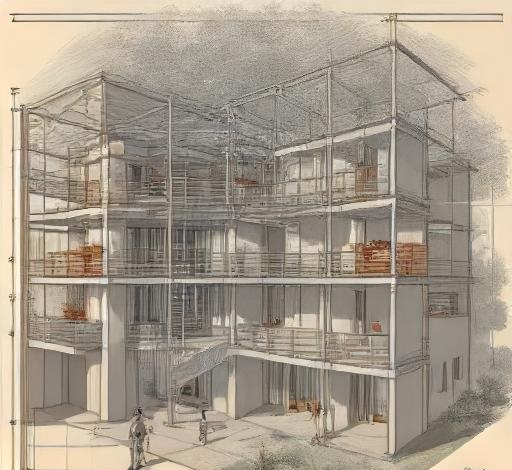Civil engineering is one of the oldest and most impactful branches of engineering. From constructing massive bridges and highways to designing sustainable buildings, civil engineers shape the world we live in. If you’re passionate about building the future—literally—then civil engineering could be the perfect career path for you. But how do you actually get started a Career in Civil Engineering? And how do you grow once you’re in?
Here’s a step-by-step guide to building a successful career in civil engineering.
Step 1: Understand What Civil Engineering Involves
Before diving into the field, it’s important to understand what civil engineers do. Civil engineering covers various sub-disciplines like:
- Structural Engineering – Designing buildings, bridges, towers, etc.
- Geotechnical Engineering – Working with soil and foundations.
- Transportation Engineering – Roads, railways, airports.
- Water Resources Engineering – Dams, canals, sewage systems.
- Environmental Engineering – Waste treatment, pollution control.
- Construction Management – Planning and overseeing projects.
Having clarity on these roles helps you align your interests and plan your career path accordingly.
Step 2: Earn the Right Educational Qualifications for Career in Civil Engineering
To become a civil engineer, start with the right academic foundation:
🔹 10+2 with Science Stream
Choose Physics, Chemistry, and Mathematics in high school to be eligible for engineering entrance exams.
🔹 Graduate with a B.Tech/B.E. in Civil Engineering
Enroll in a recognized engineering college or university. During this 4-year course, focus on key subjects like:
- Structural Analysis
- Construction Materials
- Design of Concrete & Steel Structures
- Soil Mechanics
- Fluid Mechanics
- Surveying and Geomatics
Make sure to participate in workshops, seminars, and live project work.
Step 3: Gain Practical Experience Early
Practical exposure is crucial. Try these:
- Internships – Do at least 1–2 internships during your college years.
- Site Visits – Observe ongoing projects to understand how theory is applied on-site.
- Mini Projects – Engage in real-world problems and solve them creatively.
- Lab Work – Take lab sessions seriously; they simulate real field conditions.
Step 4: Build Software Skills
Modern civil engineers need to know more than cement and steel. Mastering technical tools will set you apart:
Recommended Tools for Career in Civil Engineering:
- AutoCAD – Drafting and 2D design
- STAAD Pro – Structural analysis and design
- ETABS – Building modeling and design
- Revit – 3D Building Information Modeling (BIM)
- Primavera / MS Project – Project scheduling
Civiled Design Consultancy Pvt Ltd offers beginner- to advanced-level training in STAAD Pro and other industry-standard software to make you job-ready. Get practical skills and certifications that boost your resume.
Step 5: Develop Soft Skills
A successful civil engineer must work with teams, manage clients, and solve on-site problems. Improve your:
- Communication Skills – For dealing with clients, vendors, and teams
- Leadership – To manage site operations
- Time Management – Especially during project deadlines
- Problem Solving – Every project presents new challenges
Step 6: Get Licensed or Certified
In India, registration with the Council of Engineers or local licensing authorities can add value, especially if you’re working in government sectors.
You can also pursue:
- GATE – For higher studies or PSU jobs
- LEED Certifications – For sustainable design careers
- PG Courses / M.Tech – Specialization in Structural, Geotechnical, or other fields
Step 7: Choose Your Career Path
After graduation, civil engineers can pursue several roles:
- Site Engineer
- Design Engineer
- Structural Consultant
- Project Manager
- Government Engineer (PWD, NHAI, etc.)
- Entrepreneur / Contractor
Start small, but keep learning and improving.
Step 8: Keep Learning and Upskilling For a Career in Civil Engineering
The construction industry is rapidly evolving with smart technologies and green building concepts. To stay ahead:
- Take short-term certification courses
- Attend webinars and conferences
- Subscribe to industry journals
- Learn about sustainable and smart construction
📌 Pro Tip: Platforms like Civiled Design Consultancy Pvt Ltd offer career-focused training programs and real-project exposure. These programs are tailored to bridge the gap between academic knowledge and industry needs.
Final Thoughts
Building a career in civil engineering isn’t just about earning a degree. It’s about combining strong fundamentals, real-world experience, software proficiency, and a passion for infrastructure. Whether you dream of designing skyscrapers or leading mega infrastructure projects, the steps above will guide you from foundation to success.
Ready to build your dream career in civil engineering?
Join hands with Civiled Design Consultancy Pvt Ltd for hands-on training, real-world projects, and mentorship from industry experts. The journey starts here—let’s construct a better tomorrow, together.



